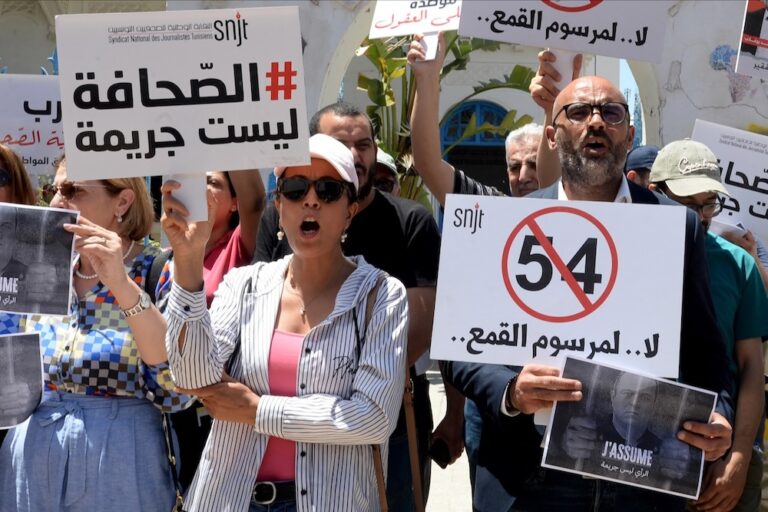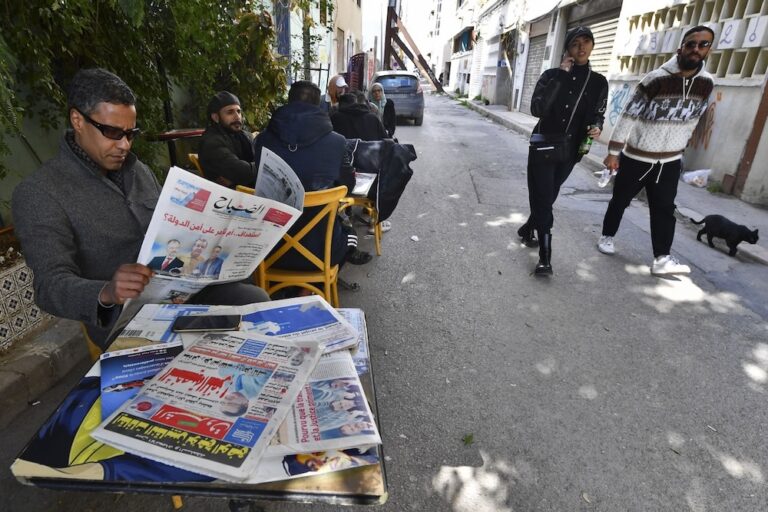Ayoub Massoudi has been charged with impugning the reputation of the army and defamation of a civil servant after he criticised Tunisia's armed forces.
UPDATE: Massoudi handed suspended sentence of four months’ imprisonment (ANHRI, 24 September 2012)
(Human Rights Watch/IFEX) – Tunis, August 20, 2012 – Tunisia’s military prosecutor should immediately drop charges and lift the travel ban against Ayoub Massoudi, former adviser to President Moncef Marzouki, for criticizing the country’s armed forces, Human Rights Watch said today.
Massoudi was charged on August 15, 2012, with impugning the reputation of the army under article 91 of the code of military justice and defamation of a civil servant under article 128 of the penal code. Massoudi’s first appearance before the investigating judge is scheduled for August 22.
“The right to subject public officials to scrutiny and criticism is one of the most basic elements of freedom of expression, a hallmark of democracy, and essential to promote debate about matters of public interest,” said Eric Goldstein, deputy Middle East and North Africa director at Human Rights Watch. “These charges, and the laws they are based on, should have no place in a democratic Tunisia that respects human rights.”
Under Tunisian law military courts enjoy the jurisdiction to try civilians and this also needs to be amended, Human Rights Watch said.
Article 91 of the code of military justice authorizes up to three years imprisonment for anyone who “commits . . . outrages against the flag or the army, offenses against the dignity, reputation or morale of the army, or acts to undermine military discipline, obedience and due respect to superiors or criticizes the actions of the military hierarchy or the military officers, offending their dignity.”
Article 128 of the penal code criminalizes defamation of a civil servant and accusing the person of illegal acts without proof of their veracity.
Massoudi resigned from his position as adviser to Marzouki after Tunisia extradited Al- Baghdadi al-Mahmoudi, Libya’s former prime minister, to Libya, on the decision of Hamadi Jebali, the head of government. Massoudi told the media that Defense Minister Abdelkrim Zoubeidi and the head of the armed forces, General Rachid Ammar, were derelict in their duty by not informing Marzouki of the extradition in a timely manner. Marzouki strongly criticized the extradition, which he says was carried out without his knowledge.
Massoudi told Human Rights Watch that on August 17, as he was passing through customs at Tunis’s airport to fly to Paris, a customs officer informed him of a travel ban issued by a military tribunal. “I believe this ban and the charges brought against me were the result of my public criticism of the army’s role in the extradition of Al-Baghdadi al-Mahmoudi,” he said.
The charges brought against Massoudi by the military tribunal violate his right to free expression, protected under article 19 of the International Covenant on Civil and Political Rights (ICCPR), to which Tunisia is a party. In 2011 the United Nations Human Rights Committee released guidance to state parties on their obligations in relation to free speech under article 19, and emphasised that the value placed by the ICCPR upon uninhibited expression “in circumstances of public debate concerning public figures in the political domain and public institutions” is particularly high.


